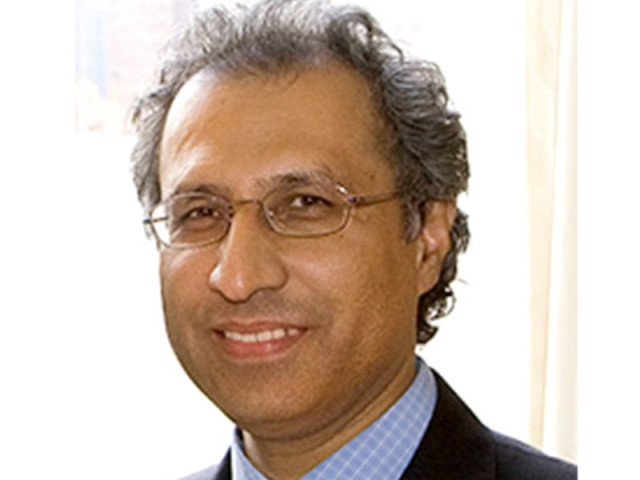Legislators have failed to frame credible policies: Shaikh
Finance minister speaks at seminar on Poverty and Inequality.

Legislators have failed to frame credible policies: Shaikh
Finance Minister Dr Abdul Hafeez Shaikh admitted on Tuesday that policymakers could not frame credible polices in the last 65 years, as there were only three spurts of growth that too in the eras of dictators.
“The growth periods in the decades of 60s with General Ayub in command, General Ziaul Haq in the 80s and General Pervez Musharraf in the 2000s were tied with wars, driven by external aid but were not driven by structural changes in Pakistan’s economy,” said Shaikh who was speaking at a seminar on “Poverty and Inequality” organised by the World Bank.
Shaikh’s comments came at a time when the country was again passing through difficult circumstances where the average growth during the last five years was below 3%.
It was the first time the finance minister spoke publicly after presenting the budget. Shaikh on Tuesday again refused to take questions on the state of the economy.
Hafeez Shaikh further said that these three spurts of growth were short-lived and “when champions of growth exited their offices, there was no one to defend the progress in their periods. Hafeez Shaikh made this comment despite being the minister for privatisation in the cabinet of General (retd) Pervez Musharraf.
The finance minister in his own diplomatic style also criticised the idea of debating inequality. “People should consider that if the economy is growing and numbers of poor falling, why one should worry about rise in inequality?” he said. He said there should also be a debate on whether it is better to have less growth and social harmony or an accelerated growth where wealth is accumulated in the hands of a few people.
While responding to the finance minister’s question, Francois Bourguignon, Director Paris School of Economics, defended the idea of debating the inequality. Francois Bourguignon had been invited by the World Bank to deliver a lecture on poverty and inequality. “At some stage too, much inequality will undermine equity and the equity is where everyone has access to same facilities,” said Bourguignon.
He said that growth was a prerequisite for poverty reduction, but growth alone did not suffice. He said pro-poor policies and equitable growth were essential for vulnerable segments of the society to catch up and not get permanently left behind because of uneven playing field.
He said that redistribution of accumulated resources like education, health services, and access to credit among the poor was the least-cost approach to attaining more equality.
“Absolute poverty reduction has to be the main goal of development,” said Bourguignon during his presentation entitled Policies for Inclusive Development in a Globalising World. “Global experience shows that while globalisation and growth can lead to inequality, it needs not necessarily be so. Domestic policies can reduce inequality without impairing growth, he added.
World Bank Country Director for Pakistan Rachid Benmessaoud said the dialogue on poverty and inequality was taking place at a time where Pakistan faces the challenge of accelerating growth and fostering employment following a series of natural disasters. In the light of the 18th Constitutional Amendment, the challenge for making growth pro-poor now lies not only with the federal government, but with the provincial governments as well,” he added.
Published in The Express Tribune, July 25th, 2012.



















COMMENTS
Comments are moderated and generally will be posted if they are on-topic and not abusive.
For more information, please see our Comments FAQ